Human Research Protection Program
Community Engagement Campaign
Bringing the IRB into the Community
The goal of Augusta University’s Community Engagement campaign seeks to engage the community in meaningful conversations regarding human subject research at Augusta University and establish a collaborative relationship with the citizens we serve.
Research study populations should mirror the characteristics of our surrounding community. However, due to persistent health disparities, which often stem from a lack of trust, inclusion within study populations is not always reflective of the actual community. Research studies that are not appropriately inclusive undermine the confidence of the research results.
To coincide with ensuring the adequate and fair representation of all groups in research, our IRB office wished to take steps to begin a process that was long overdue. Within our organization, we first formed a community engagement steering community (CESC) that would help steer our outreach and engagement efforts in the community. The CESC included members of the community that ranged from IRB community members, social workers, nurses, lawyers, students, and members of the golden harvest food bank. We wanted a wide range of individuals who actively represented the community and knew where we needed to focus our efforts.
We also begin community outreach efforts - "Boots on the Ground". The efforts included community educational forums, where we focused on listening to the communities and taking back suggestions on how to improve our participant outreach and representation. We also wanted to provide them with needed education and tools. Outreach efforts also included research symposiums focused on Health literacy and representation of our IRB office at community health fairs, and research days, to again engage with and learn from the community.
We will perform internal reviews of policies and IRB composition to ensure we have membership of varied backgrounds and review of implicant barriers to recruitment. We will continue to partner with Community Based Researchers to collaborate and serve as a liaison between investigators and the community.
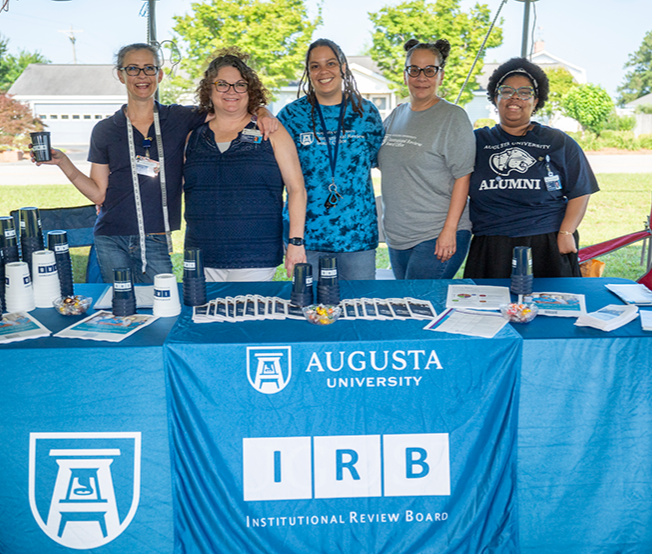
AU-MNI Rural Health Fair Building Trust
https://jagwire.augusta.edu/showing-up-for-the-community-au-mni-rural-health-fair-building-trust/AU Researchers Share Insight with Local Community Through Forum
https://jagwire.augusta.edu/au-researchers-share-insight-with-local-community-through-forum/
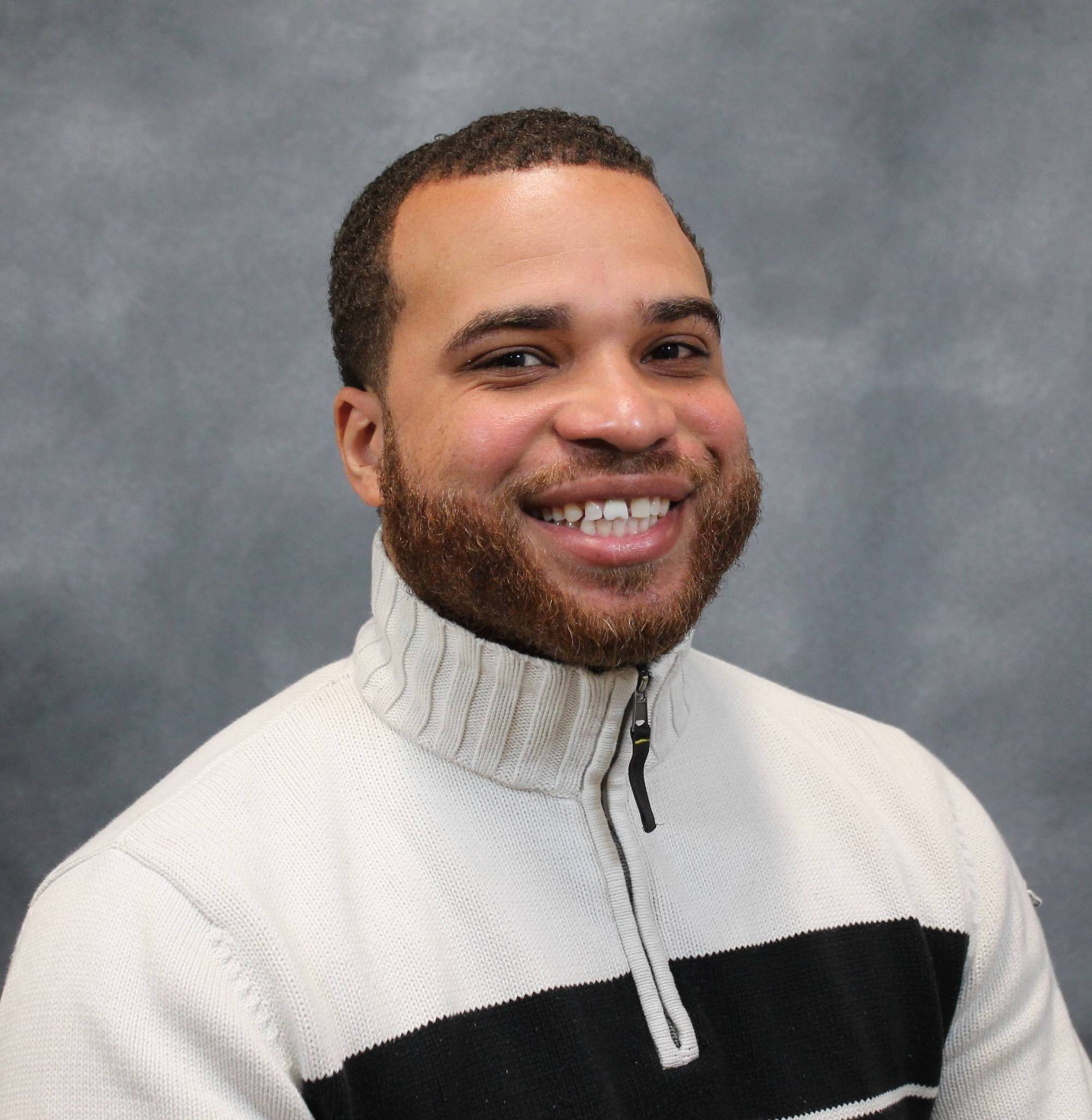
Food For Thought: Understanding Food Deserts & Food Swamps
March 11, 2026 11:30 AM - 1:00 PM
Join the Lucy Craft Laney Museum of Black History and the Augusta University IRB Office for a community luncheon exploring food deserts and food swamps, related health risks, and research impacting communities nationwide and locally. Led by Dr. Malcolm Bevel.
$15 registration fee | Lunch provided | For more information, please contact Bianca Marsh at bmarsh@augusta.edu or 706-721-3110.
Meet the Leaders
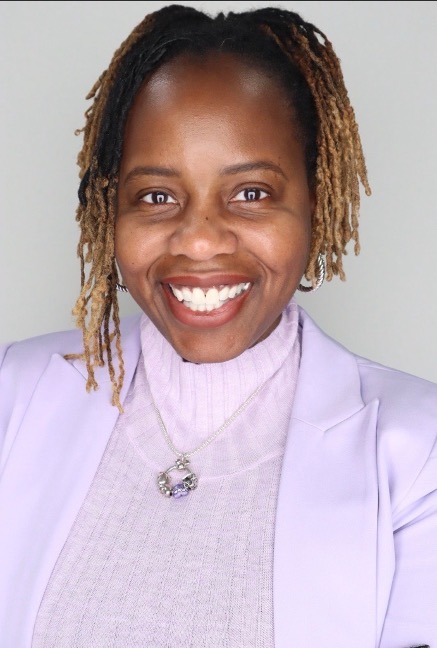
Tiffany Coleman, MS, MPH, CIP
- Director, Augusta University Institutional Review Board
Promoting fairness and representation in research has long been a passion of mine. With my medical background in Sleep Medicine, I often observed differences in health outcomes among various groups. In my current role as IRB Director, I continue to see similar gaps in research participation and access across studies. This perspective has strengthened my commitment to ensuring that research opportunities and protections are applied fairly to all individuals. Through this initiative, my goal is to build collaborative partnerships with the communities we serve and foster meaningful conversations that lead to lasting actions promoting fairness in research involvement and outcomes.
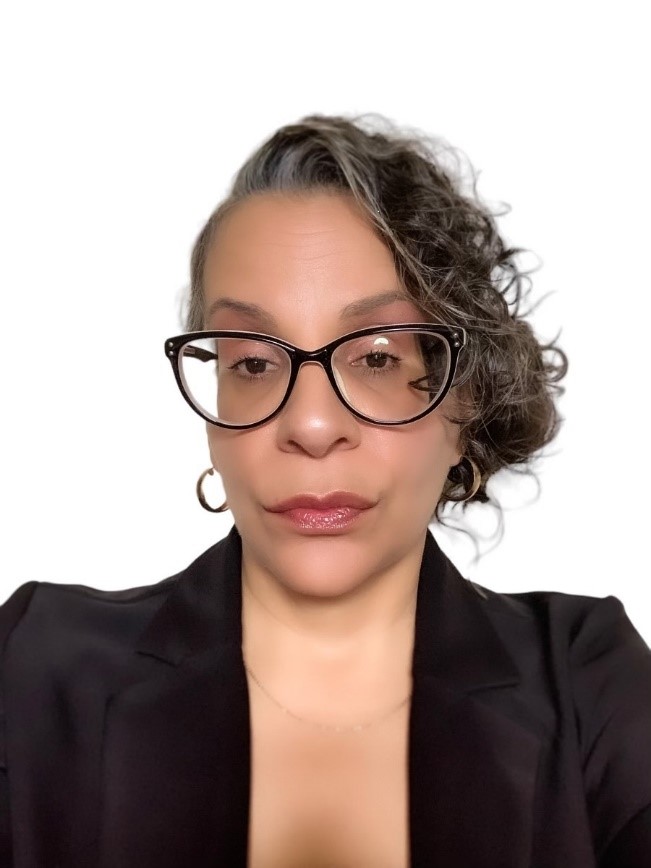
Melissa Toomer, CIC
- IRB Specialist, Augusta University Institutional Review Board
In my work, I’ve observed that many communities are often not fully represented or engaged in research studies. My goal is to help bridge this gap by strengthening connections between researchers and the community, creating pathways that make research more approachable, understandable, and accessible. By promoting open communication, building trust, and providing clear information about research opportunities and protections, I aim to ensure that individuals who stand to benefit most from scientific advancements have the chance to participate and have their voices heard.
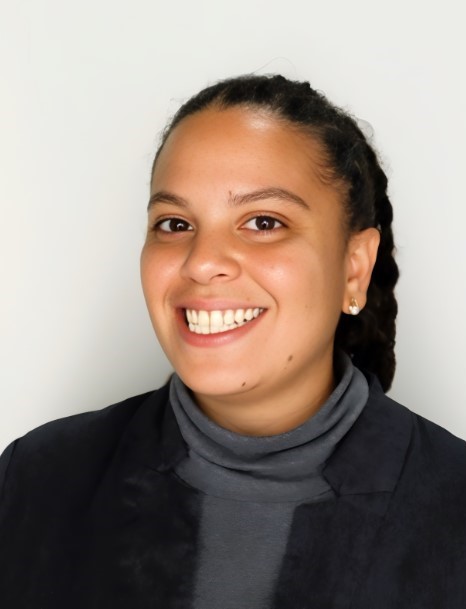
Bianca Marsh, BA
- IRB Training & Education Coordinator, Augusta University Institutional Review Board
I’m an Augusta native and a proud graduate of the historic Academy of Richmond County. With over six years of research experience and two years dedicated specifically to human subject protections, I bring both practical knowledge and a deep commitment to ethical research practices. I joined the HRPP Community Engagement Initiative in 2023 to help strengthen trust between researchers and the local community I grew up in. Through this work, I support efforts to improve outreach, enhance communication, and ensure that research reflects the needs and priorities of the people it’s meant to serve. For me, this initiative is about building lasting partnerships, fostering open dialogue, and helping create a research environment where all community members feel respected and empowered to take part.
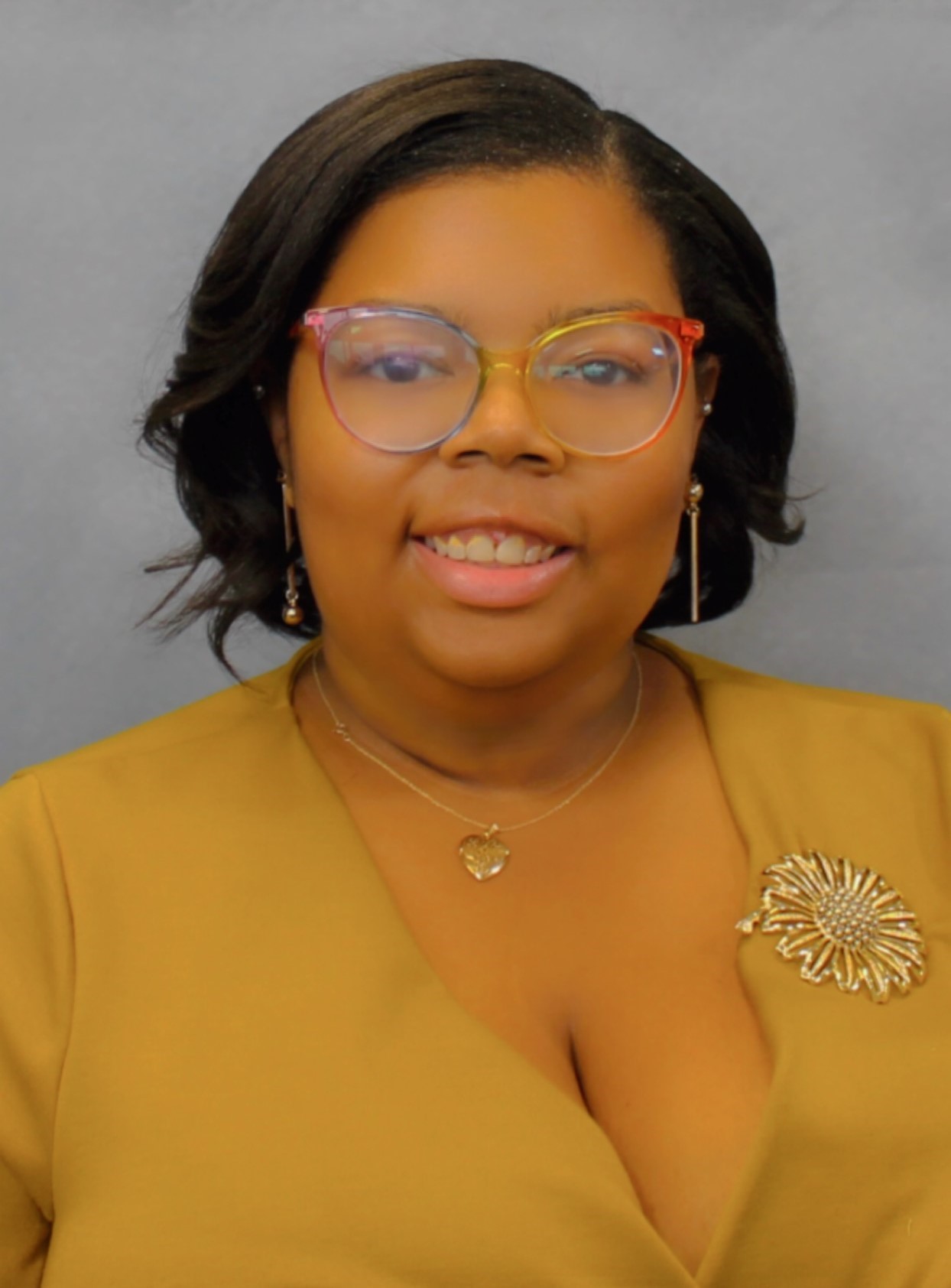
Asia Bonham, BS
- IRB Analyst 1, Augusta University Institutional Review Board
I recognize the importance of acknowledging the ongoing differences in health outcomes and the experiences that continue to shape how communities view and engage with research. These factors have influenced trust and participation over time, making it essential to create an environment where open communication and mutual respect guide every stage of the research process. Through my involvement in this initiative, my goal is to help foster a transparent, fair, and respectful research environment—one where trust can be strengthened and all individuals, whether researchers or participants, feel valued, protected, and encouraged to take part in advancing scientific understanding and community well-being.
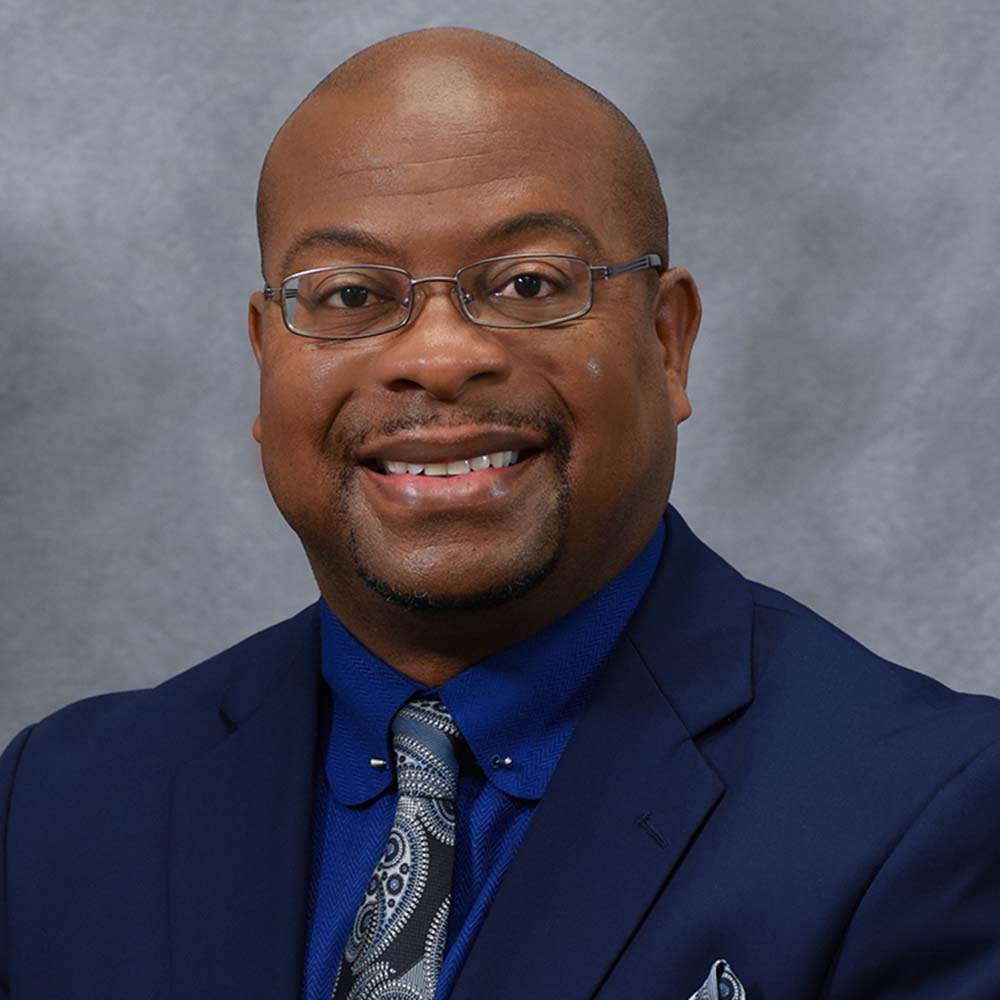
Darryl Nettles, BS, M.Th., MPA, DPA
- Postdoctoral Fellow, Georgia Cancer Center
As a postdoctoral fellow at the Georgia Cancer Center, I am dedicated to advancing community-based research that addresses persistent health challenges. Growing up in rural Alabama, I witnessed how systemic barriers and limited access to care impact many populations. With over a decade of experience across education, industry, and academic research, I bring both practical expertise and an empathetic perspective to my work. My research focuses on social determinants of health, obesity prevention, and the interplay between chronic stress, cancer, and cardiovascular outcomes. Through initiatives like c-CARE II and American Heart Association–funded projects, I strive to conduct research that not only examines health challenges but also fosters meaningful community engagement and empowers people as partners in developing solutions.
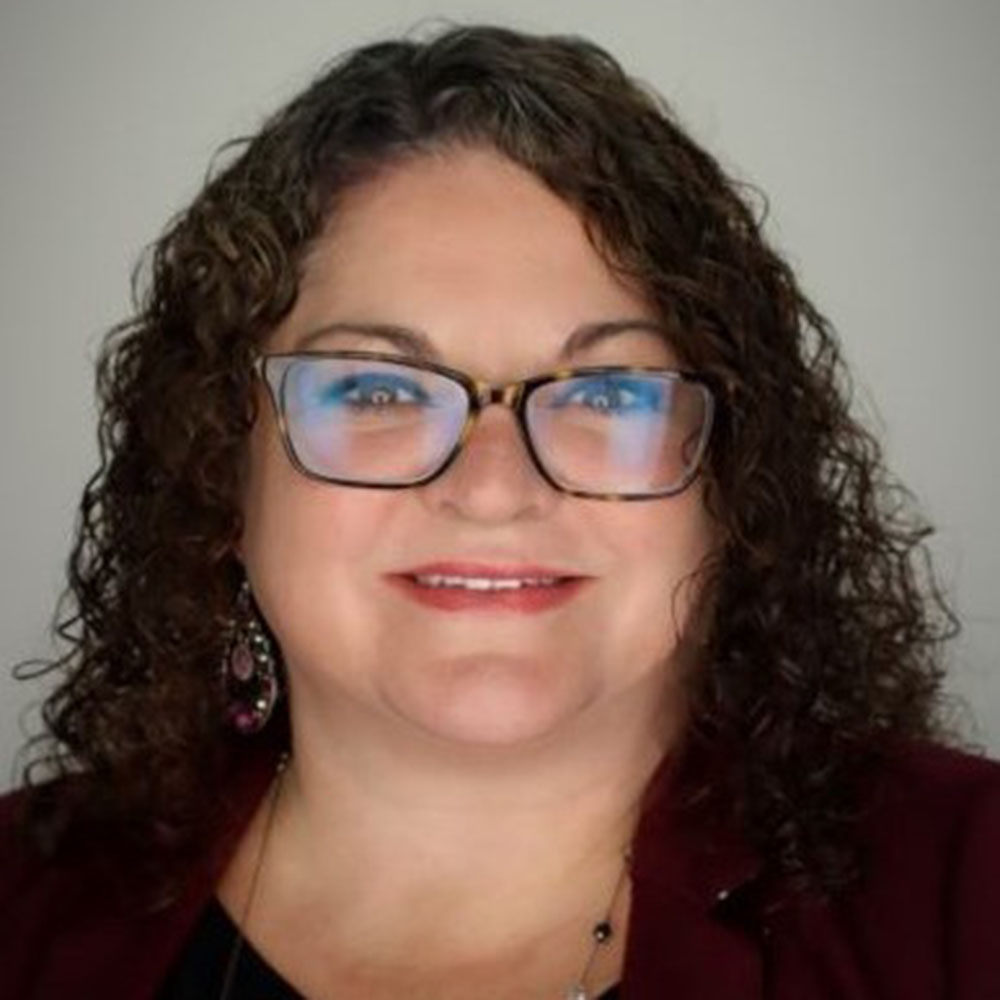
Marcela Hodges, BBA
- IRB Reliance Manager, Augusta University Institutional Review Board
I am an experienced Human Research Protections Program professional currently serving as IRB Reliance Manager. With over a decade of expertise in clinical research coordination and regulatory compliance, I’ve held progressive roles supporting research integrity and regulatory best practices. I recently joined the HRPP Community Engagement unit and am excited to collaborate with researchers and the community to strengthen partnerships and advance ethical, impactful research.
Member Composition
The basic principles of the Belmont Report charge IRBs with ensuring the rights and well-being of the human participants are protected. This includes ensuring the adequate and fair representation of all groups in research to ensure benefits and results are spread equally throughout the population. To ensure adequate and fair representation of underrepresented groups, we also need to ensure we have IRB membership of varied backgrounds. We have performed the first phases of our membership assessments of our IRB. View the initial results.
Assessments of IRB Membership diversity will be assessed annually by our team.
Resources
Research Symposium / Health Literacy Training
Researcher Consultation / Resources
Augusta University’s Community Engagement initiative also aims to collaborate with researchers to serve as a liaison between investigators and the community by:
- Soliciting feedback from investigators related to their challenges to ensuring the equitable recruitment and/or selection of diverse participants
- Identifying strategies to assist investigators with identifying and addressing implicit bias in research design and recruitment
- Providing AU researchers recommendations to increase the recruitment of research participants
- Providing feedback to research investigators to improve the research process based on the research participants' experience
Pre-Study, On-Study and Post Study Considerations: Procedural and Logistical Checklist
Resources for Participants
Current Research Studies
Barriers to Participant Recruitment and Retention; Beyond the Tuskegee Syphilis Study
The purpose of this study is to discuss challenges and strategies with recruiting research populations that mirror the community. We will also administer a pre and post survey to measure the focus group's knowledge of recruitment and retention in research before and after the focus group session.
Barriers to Participant Recruitment and Retention; A Researcher’s Prospective
The purpose of this study is to survey researchers to explore the issues they may be having with recruiting research populations that mirror the community. As a second phase, we wish to engage researchers via a focus group to discuss challenges and strategies the researchers may face with recruiting and retention.
Events
Community Research Day
- December 9
- Bethel Community Church
10 - 12 p.m.
Family Life Center
2610 Milledgeville Rd.Augusta, GA 30904
Aiken County Roundtable
- TBA
Burke County Roundtable
- TBA